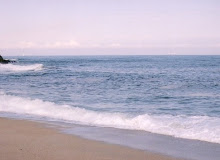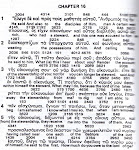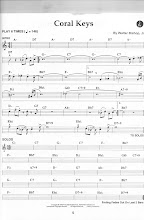
"Bonaparte's principle was...to look upon religions as the work of men, but to respect them everywhere as a powerful engine of government...If Bonaparte spoke as a Mussulman [Muslim], it was merely in his character of a military and political chief in a Mussulman country. To do so was essential to his success, to the safety of his army, and...to his glory...In India he would have been for Ali, at Thibet for the Dalai-lama, and in China for Confucius." From Louis Antoine Fauvelet de Bourrienne, Memoirs of Bonaparte, R. W. Phipps Ed., New York: Charles Schribner's Sons, 1889, p.168–169; as quoted on "Bonaparte and Islam.". George Mason University Center for History and New Media. Retrieved on 2008-01-05.
In March 1798, Bonaparte proposed a military expedition to seize Egypt, then a province of the Ottoman Empire, seeking to protect French trade interests and undermine Britain's access to India. The Directory, though troubled by the scope and cost of the enterprise, readily agreed so the popular general would be away from the center of power.[25]
Battle of the Nile by Thomas Luny
In May, Bonaparte was elected a member of the French Academy of Sciences. His Egyptian expedition included a group of 167 scientists: mathematicians, naturalists, chemists and geodesers among them; their discoveries included the Rosetta Stone and their work was published in the Description of Egypt in 1809.[26] This deployment of intellectual resources is considered by Ahmed Youssef an indication of Bonaparte's devotion to the principles of the Enlightenment, and by Juan Cole as a masterstroke of propaganda, obfuscating the true imperialist motives of the invasion.[27] In a largely unsuccessful effort to gain the support of the Egyptian populace, Bonaparte also issued proclamations casting himself as a liberator of the people from Ottoman oppression, and praising the precepts of Islam.[note 5]
En route to his campaign in Egypt, Napoleon seized Malta on 9 June 1798. Requesting safe harbor to resupply his ships, he waited until his ships were safely in port, and then turned his guns on his hosts. The Knights of Malta were unable to defend themselves from this attack.
On 1 July, Napoleon landed successfully at Alexandria, temporarily eluding pursuit by the British Royal Navy. After landing he successfully fought The Battle of Chobrakit against the Mamelukes, an old power in the Middle East. This battle helped the French plan their attack in the Battle of the Pyramids fought over a week later, about 6 km from the pyramids. Bonaparte's forces were greatly outnumbered by the Mamelukes cavalry - 20,000 against 60,000 - but Bonaparte formed hollow squares, keeping supplies safely on the inside. In all, 300 French and approximately 6,000 Egyptians were killed.[28]While the battle on land was a resounding French victory, the British Royal Navy managed to win at sea. The ships that had landed Bonaparte and his army sailed back to France, while a fleet of ships of the line remained to support the army along the coast. On 1 August the British fleet under Horatio Nelson fought the French in the Battle of the Nile, capturing or destroying all but two French vessels. With Bonaparte land-bound, his goal of strengthening the French position in the Mediterranean Sea was frustrated, but his army succeeded in consolidating power in Egypt, though it faced repeated uprisings.[29]
Battle of the Nile by Thomas Luny
In May, Bonaparte was elected a member of the French Academy of Sciences. His Egyptian expedition included a group of 167 scientists: mathematicians, naturalists, chemists and geodesers among them; their discoveries included the Rosetta Stone and their work was published in the Description of Egypt in 1809.[26] This deployment of intellectual resources is considered by Ahmed Youssef an indication of Bonaparte's devotion to the principles of the Enlightenment, and by Juan Cole as a masterstroke of propaganda, obfuscating the true imperialist motives of the invasion.[27] In a largely unsuccessful effort to gain the support of the Egyptian populace, Bonaparte also issued proclamations casting himself as a liberator of the people from Ottoman oppression, and praising the precepts of Islam.[note 5]
En route to his campaign in Egypt, Napoleon seized Malta on 9 June 1798. Requesting safe harbor to resupply his ships, he waited until his ships were safely in port, and then turned his guns on his hosts. The Knights of Malta were unable to defend themselves from this attack.
On 1 July, Napoleon landed successfully at Alexandria, temporarily eluding pursuit by the British Royal Navy. After landing he successfully fought The Battle of Chobrakit against the Mamelukes, an old power in the Middle East. This battle helped the French plan their attack in the Battle of the Pyramids fought over a week later, about 6 km from the pyramids. Bonaparte's forces were greatly outnumbered by the Mamelukes cavalry - 20,000 against 60,000 - but Bonaparte formed hollow squares, keeping supplies safely on the inside. In all, 300 French and approximately 6,000 Egyptians were killed.[28]While the battle on land was a resounding French victory, the British Royal Navy managed to win at sea. The ships that had landed Bonaparte and his army sailed back to France, while a fleet of ships of the line remained to support the army along the coast. On 1 August the British fleet under Horatio Nelson fought the French in the Battle of the Nile, capturing or destroying all but two French vessels. With Bonaparte land-bound, his goal of strengthening the French position in the Mediterranean Sea was frustrated, but his army succeeded in consolidating power in Egypt, though it faced repeated uprisings.[29]
































































No comments:
Post a Comment